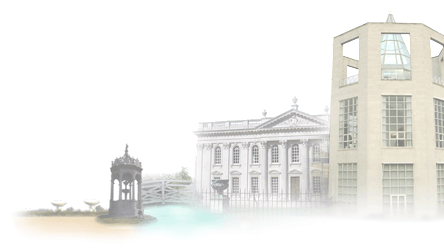A Cambridge perspective
on the digital world



December 2004
While governments focus on making an uncertain world secure (or at least, persuading their electorates they are doing it), the rest of us are adjusting to a reality that is changing in less violent, but equally permanent ways. 2004 brought home the point that what was once science fiction is now here to stay, and is changing the way we live and work. Here is a short list of things we had better get used to living with, because they aren't going to go away:
Once way down the league, Britain now leads the world in the uptake of broadband. The telephone network is yesterday's news. Soon, your voice calls will be transmitted using the same technology as the Internet: BT is investing heavily in its 21st Century Network, based on Internet Protocol (IP). Internet millionaires may be an endangered species, but the Internet itself, in different guises, is taking over the world.
Partly due to broadband and IP networks, business tasks of all kinds can now be outsourced to anywhere that has a network connection - which means anywhere in the world. Outsourcing is not just moving jobs around the world, it is changing the way business (and government) works. Since the Industrial Revolution, doing business has meant bringing people together in one place - whether in a factory or an office. No longer.
The nation's (and just about every other nation's) love affair with text messaging continues. Once seen as a teenage cult, text is now used by all ages. Saga, the organisation for the over-50s, recently added a text response service to its radio channel. More than two billion text messages are now sent every month in the UK, and the growth shows no signs of slowing.
Mobile phones are, of course, everywhere. But things as well as people are now talking to one another by wireless too. Expect more and more of this wireless promiscuity, as everything from laptops to hi fis grows a WiFi or Bluetooth connection.
'3G' is finally here, as existing network operators weigh in to join new entrant 3 in offering a third generation mobile service. Don't really want to make video calls? Never mind, it will do everything else as well!
This was the year that Kodak announced they were halting development work on conventional film, and High Street electrical store Dixons said they were no longer stocking VHS video recorders, because DVD players are outselling them 40 to 1. It's all digits now... and the plastic disc (whether CD or DVD) rules the world.
This was also the year when sales of downloaded ringtones for mobiles exceeded CD singles. When is a few seconds of music worth more than a few minutes? When it's a ringtone.
So what's next for 2005? Here are some predictions:
Just as DVD wins the war with VHS, another technology comes along. Video recorders with built-in hard discs allow TV programmes to be recorded and replayed - and broadcast programmes to be 'time shifted' while you answer the phone or make the coffee. Already available on Sky Plus and some higher priced recorders, this will be seen everywhere as prices fall. The combination of hard disc (for short term 'time shifting') and DVD (for recordings you want to keep, and for playing commercial DVDs) is the one to watch.
Expect to hear a lot more about wireless networks, for both consumers and businesses. Technologies such as WiMAX and UWB (UltraWideBand) are set to join the more familiar WiFi... and devices which don't look at all like PCs will begin to sprout wireless network connections. TVs, radios and hi fis with WiFi links? Yes, definitely.
Meanwhile, expect other places to follow Bristol's lead and become 'wireless cities', with public access to WiFi on every street corner.
Identity will become a major issue... from government plans for ID cards and citizen databases, to identity theft ('phishing') and security for online banking, not to mention the trading of personal data for marketing purposes. Putting health data online will raise further privacy concens. These are complex but not insoluble issues. Having an online identity has become a virtual necessity for 21st century life. The key questions are who do you trust with your data, and how do you make sure it's accurate?
Closely related to identity in the online world is the problem of spam, now estimated to make up nearly 60% of email traffic. Solutions are under way, following legal moves by governments and (finally) agreement by major organisations in the IT world to co-operate in finding a solution. Fortunately, mobile spam is nowhere near as big a problem, and is much easier to deal with. Solutions will be found, but the problem will get worse in 2005 before it gets better.
A new phenomenon is taking the media world by storm. Download 'radio' programmes from sources around the world to your iPod or MP3 player, and take them with you to listen during the day. Just leave your iPod (or other device) docked overnight, and it will pick up the channels you select from the Net, to listen to whenever you like. This is radio, but it's not wireless - and anyone can become a podcaster, reaching a global audience. Expect to hear much more about this in 2005.
The subject of loose talk and speculation for the past ten years, 'convergence' is finally a reality. Just about everyone in the telecoms world (fixed and mobile) is moving towards networks based on Internet Protocol. These networks will carry everything from voice and text to video: TV programmes and films on demand, music, news and entertainment, customer service calls and intimate chats, grocery orders and bank transactions. Several industries are being poured into the digital melting pot and stirred vigorously.
Convergence doesn't make life any easier for suppliers, or users. There is an alphabet soup of different technology options, especially for wireless: 2G, 3G, 2.5G, WiFi, Bluetooth, WiMAX, UWB, MBWA... and a growing number of fixed/mobile hybrids, all with different pricing options. Not to mention legacy systems to be factored in. Should I buy from a fixed operator, a mobile operator or a third party service provider? A bundle, or separate packages? Basic telecoms, or fully outsourced business processes? How much convergence is a good thing?
Nearly everything in business now involves telecoms and IT, delivered to anything from a PC to a smart phone. But who should do what? In-house or outsource? Where, and from whom? And at what price?
©2004 Mediation Technology
